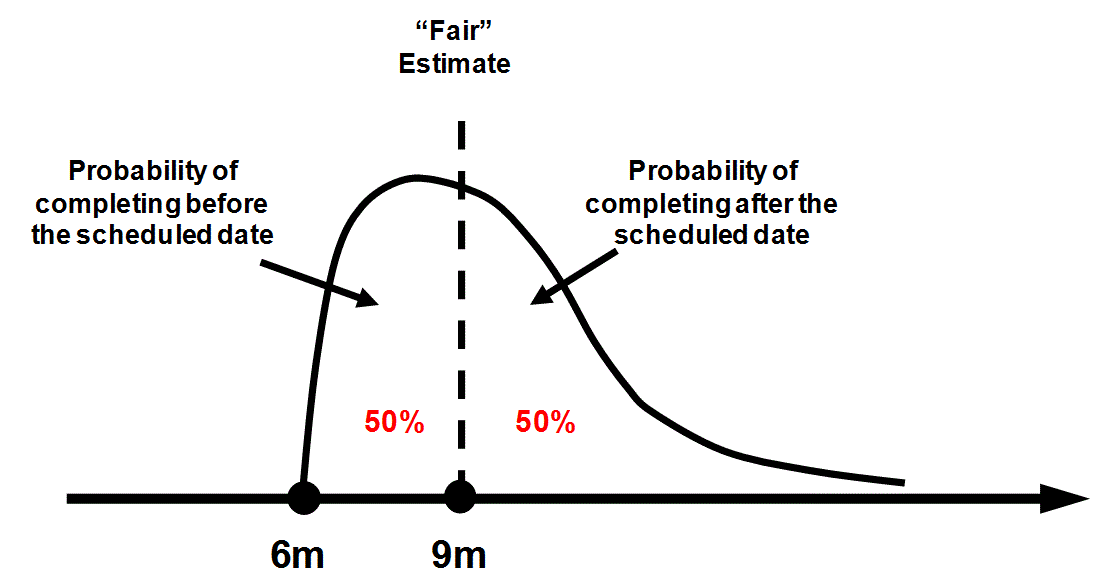Long time ago, when I was still working as a permanent employee, I was invited for a job interview by a local software product company. I arrived at their headquarters and was led to the conference room where I was greeted by the CEO, VP of Marketing and the CTO of the organization.
The interview went on without any surprises; I was asked to tell a little bit about myself, then the CEO told me about the current projects the company has been involved in lately, followed by the overview of the key products produced by the firm provided by the vice-president of marketing.
The CTO has been sitting quietly until that moment, but suddenly he shifted in his chair, looked at me somewhat intensely and the following conversation took place:
CTO: (looking at a copy of my resume) I see you don’t have any technical background …
Me: Well, I did work as a business analyst for a while, before taking on both the project management and requirements engineering roles at most of the companies I worked at.
CTO: That’s not what I meant. What I was trying to say is that you don’t have any coding experience.
Me: Oh, no … My educational background was in finance and management science.
CTO: How are you going to work with our developers then?
Me: I am sorry, I am not sure what you mean …
CTO: Well, you assign a task to the programmer and he tells you that it would take five days to accomplish it. How do you know he is not lying to you and it would take him only two days? He could spend the rest of his time on Facebook or YouTube …
I have to admit this was neither the first nor the last time I heard a variation of this argument in my project management career. Thus, I think it is time to make two very important points about this topic.
First and the most obvious one: there is something horribly wrong when a C-level executive pretty much admits to the fact that he considers his technical resources to be habitual liars! This could only have two possible explanations: either the culture at the company is in trouble or the human resources department is doing something wrong with respect to their recruitment processes.
Second and the less obvious aspect of this paradigm is a fairly little-known phenomenon known as optimism bias. Without venturing into complicated aspects of psychology, this theory can be summed up in two simple statements:
- We tend to underestimate the complexity of the tasks in front of us, and
- We tend to overestimate our talents and abilities to accomplish these tasks
Another concept closely related to the one above is the “normal” versus “project management” perception of the word “average”. Let me illustrate this by using a simple example. Assume that a project manager asks one of his engineers, “On average, how long do you think it would take you to finish this task?” and the engineer says, “Roughly five days”. If five days is an average perceived duration of the task, what is the probability – purely from a mathematical standpoint – of finishing this task on time? You would probably be very surprised to find out (see Figure 1) that the probability is only 50%.
Figure 1
As a result, usually when I sat down with my technical resources to generate some estimates for the tasks on our project’s work breakdown structure the following conversations frequently took place:
PM: OK, now we have Task A to consider. We have already discussed that it would be handled by Bob, correct?
Bob: Yes, that is the case.
PM: So, Bob, how long do you think it would take you to accomplish this task?
Bob: Should take me about four days …
PM: What is your confidence in this estimate? In other words, are you 50%, 75% or 90% confident in it? I would rather prefer that you provide me an estimate with a 90% level of confidence.
Bob: Oh, you want a 90% confidence? Well in that case, considering risks X, Y and Z I would have to say at least six days.
So, let us sum up all the points we discussed here:
- A mistrust of the estimates generated by your technical team members based on the belief that they intentionally pad their forecasts so that they can spend more time on Facebook and YouTube will have a really negative effect on your team morale.
- When communicating with your technical team members about the project estimates always keep the “optimism bias” phenomenon in mind
- When generating estimates for the specific task, always clarify with your technical resources as to whether they are 50%, 75% or 90% confident in them
About the Author
Jamal Moustafaev, MBA, PMP – president and founder of Thinktank Consulting is an internationally acclaimed expert and speaker in the areas of project/portfolio management, scope definition, process improvement and corporate training. Jamal Moustafaev has done work for private-sector companies and government organizations in Canada, US, Asia, Europe and Middle East. Read Jamal’s Blog @ www.thinktankconsulting.ca
- Please follow me on Twitter:
- Like our page on Facebook:
- Connect with me on LinkedIn:
- Subscribe to my RSS feed:
Jamal is an author of two very popular books: Delivering Exceptional Project Results: A Practical Guide to Project Selection, Scoping, Estimation and Management and Project Scope Management: A Practical Guide to Requirements for Engineering, Product, Construction, IT and Enterprise Projects.

